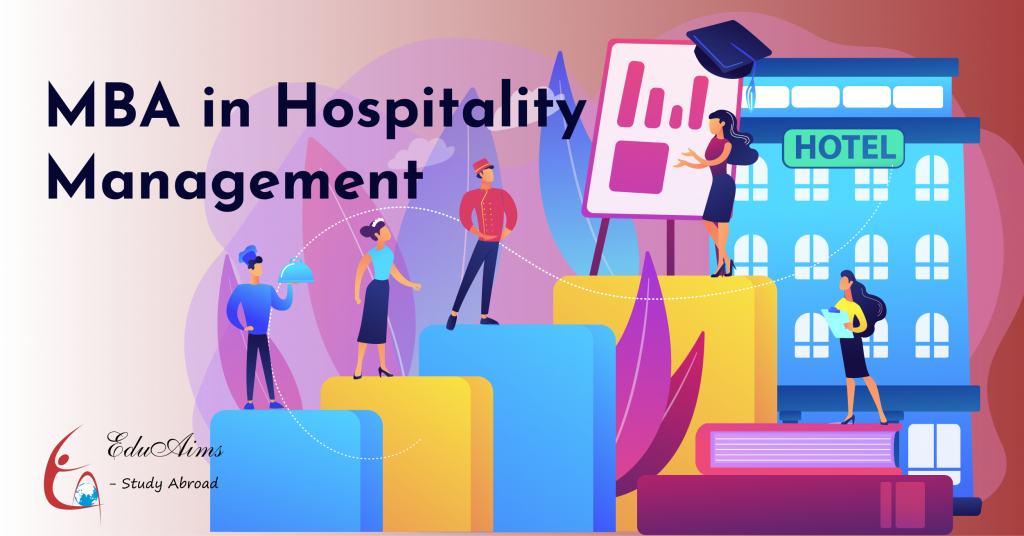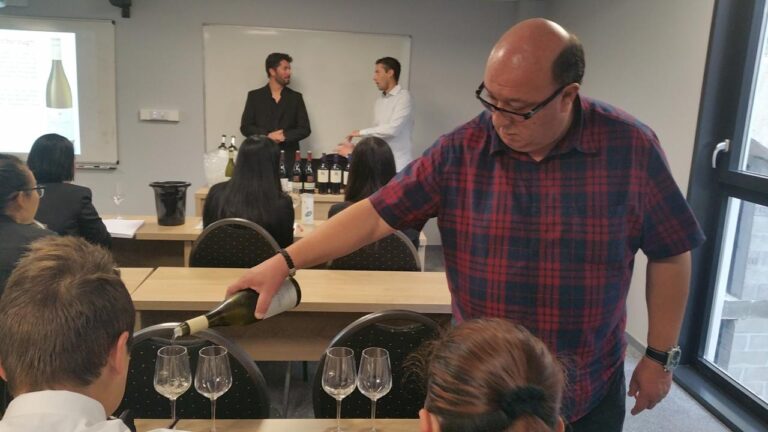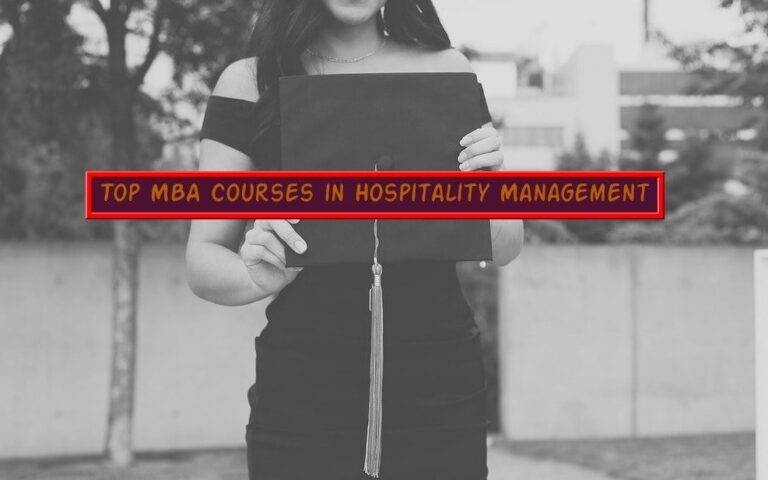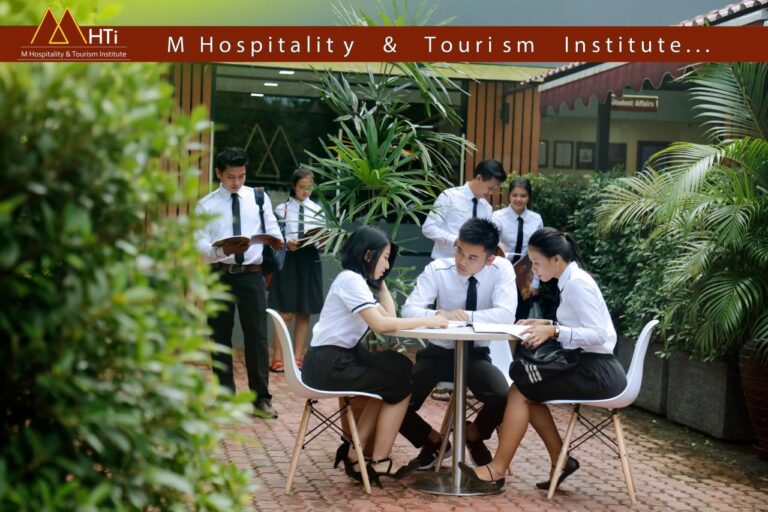Online MBA Hospitality Management A Career Accelerator
Online MBA hospitality management programs offer a dynamic pathway to success in a vibrant and ever-evolving industry. These programs provide a comprehensive curriculum blending traditional business acumen with specialized hospitality knowledge, equipping graduates with the skills and expertise to thrive in diverse roles. From luxury hotel management to innovative culinary tourism ventures, the possibilities are as expansive as the global hospitality sector itself.
This exploration delves into the key aspects of these programs, examining curriculum, career prospects, accreditation, technological integration, and financial considerations.
The flexibility of online learning allows professionals to pursue advanced degrees while maintaining their current careers, fostering a unique blend of practical experience and theoretical knowledge. This blend is highly valued by employers seeking individuals with both the strategic thinking of an MBA and the practical understanding of the hospitality field. We will examine the various specializations available, the technological tools used in online learning, and the robust networking opportunities that these programs offer.
Program Overview
An Online MBA in Hospitality Management provides a comprehensive education blending business acumen with the intricacies of the hospitality industry. This program caters to working professionals seeking career advancement or a change in direction within the dynamic hospitality sector. It offers the flexibility of online learning while maintaining the rigor and depth expected from a top-tier MBA program.
Curriculum of an Online MBA in Hospitality Management
A typical curriculum for an online MBA in hospitality management covers a broad range of subjects. Core business courses such as accounting, finance, marketing, and strategic management form the foundation. These are complemented by specialized hospitality courses focusing on areas like revenue management, hotel operations, food and beverage management, tourism, event planning, and hospitality law. Many programs also incorporate elective courses allowing students to tailor their studies to specific career interests, such as sustainable hospitality or digital marketing in the hospitality industry.
The curriculum often includes case studies, simulations, and real-world projects to provide practical application of theoretical knowledge. Some programs may also require a capstone project or internship to solidify learning and prepare graduates for immediate employment.
Admission Requirements for Online MBA Programs in Hospitality Management
Admission requirements vary among institutions, but generally include a bachelor’s degree from an accredited university, a minimum GPA (often 3.0 or higher), GMAT or GRE scores (though some programs are waiving these requirements), and professional experience in a related field. Many programs also require a strong application essay outlining career goals and a resume showcasing relevant experience. Some institutions may also require letters of recommendation from professional contacts or academic references.
Applicants should carefully review the specific admission requirements of each program they are considering.
Comparison of Online and On-Campus MBA Programs in Hospitality Management
Both online and on-campus MBA programs in hospitality management offer a high-quality education, but they differ significantly in their delivery and learning experience. On-campus programs offer face-to-face interaction with professors and classmates, fostering collaboration and networking opportunities. Online programs, conversely, provide flexibility and convenience, allowing students to study at their own pace and location. While online programs may lack the immediate social interaction of an on-campus setting, many utilize interactive online platforms and virtual collaboration tools to replicate some aspects of the traditional classroom experience.
The choice between an online and on-campus program depends on individual learning styles, career commitments, and personal preferences.
Key Skills Gained from an Online MBA in Hospitality Management
The following table summarizes the key skills gained from an online MBA in hospitality management, their descriptions, applications within the hospitality industry, and their value to employers:
| Skill | Description | Application in Hospitality | Value to Employers |
|---|---|---|---|
| Strategic Management | Developing and implementing long-term plans to achieve organizational goals. | Developing and executing hotel expansion strategies, creating marketing plans for resorts, improving operational efficiency in restaurants. | Ability to lead and drive organizational growth, improve profitability, and navigate competitive landscapes. |
| Financial Management | Analyzing financial statements, managing budgets, and making sound financial decisions. | Managing revenue, controlling costs, forecasting profitability, securing financing for new ventures. | Ensuring financial stability and maximizing return on investment. |
| Marketing and Sales | Understanding market trends, developing marketing strategies, and driving sales growth. | Developing effective marketing campaigns for hotels and restaurants, managing online reputation, attracting and retaining customers. | Ability to increase revenue, enhance brand awareness, and improve customer loyalty. |
| Operations Management | Optimizing operational processes, managing resources effectively, and ensuring efficient service delivery. | Improving hotel operations, streamlining food and beverage service, managing staff effectively, enhancing customer service. | Ability to improve efficiency, reduce costs, and enhance the customer experience. |
Program Accreditation and Recognition
Choosing an online MBA program, especially in a specialized field like hospitality management, requires careful consideration of the program’s accreditation. Accreditation signifies that the program meets specific quality standards and provides assurance to prospective students and employers about the rigor and value of the education received. This section details the importance of accreditation and the recognition associated with our program.Accreditation ensures a consistent level of quality in education, curriculum, faculty qualifications, and resources.
It is a rigorous process that involves an external review of the program’s operations and adherence to established standards. This process validates the program’s commitment to excellence and helps prospective students make informed decisions. Furthermore, accredited programs often enjoy greater recognition and acceptance among employers, leading to enhanced career prospects.
Reputable Accrediting Bodies for Online MBA Hospitality Management Programs
Several organizations globally accredit business and management programs, including those specializing in hospitality. The credibility and recognition of these accrediting bodies vary depending on their history, reputation, and the stringency of their accreditation standards. It is essential to research the accrediting body of any program to gauge its reputation and the value of the degree conferred.
- AACSB International (Association to Advance Collegiate Schools of Business): AACSB accreditation is widely considered the gold standard for business schools globally, representing a high level of academic excellence and rigorous standards. Programs holding this accreditation are often viewed favorably by employers.
- EQUIS (European Quality Improvement System): EQUIS accreditation focuses on the overall quality of management education programs, including international standards and a strong emphasis on research and innovation. It’s a respected accreditation for programs with a global perspective.
- AMBA (Association of MBAs): AMBA accreditation is focused on postgraduate business programs, recognizing excellence in teaching, curriculum, and student experience. This accreditation is often associated with programs offering a strong practical and applied focus.
Recognition and Value of Degrees from Different Accredited Institutions
The recognition and value of an MBA degree from an accredited institution depend on several factors, including the reputation of the institution itself, the specific accreditation held, and the program’s curriculum. While degrees from AACSB-accredited institutions generally hold the highest recognition, programs accredited by other reputable bodies, like EQUIS or AMBA, also carry significant weight, especially within specific regions or industries.
The value of the degree is further enhanced by the program’s curriculum, which should be relevant to the current needs of the hospitality industry. For example, a program incorporating emerging technologies or sustainable practices will hold greater value in today’s market.
Accreditation’s Impact on Career Prospects
Accreditation significantly impacts career prospects for graduates. Employers often prioritize candidates with degrees from accredited institutions, viewing them as evidence of quality education and professional competence. This preference translates into improved job opportunities, higher starting salaries, and greater career advancement possibilities. Many organizations actively seek out candidates with degrees from AACSB, EQUIS, or AMBA-accredited programs, particularly for senior management roles.
A degree from a reputable accredited institution demonstrates a commitment to professional development and strengthens a candidate’s overall profile.
Technological Aspects of Online Learning

Our online MBA in Hospitality Management leverages a sophisticated blend of technologies to deliver a dynamic and engaging learning experience. This section details the technological tools employed, highlights the advantages and challenges of online learning, and illustrates how technology enhances the learning process, ultimately preparing you for success in the modern hospitality industry.
The program utilizes a Learning Management System (LMS), such as Canvas or Blackboard, as its central hub. This platform hosts course materials, facilitates communication between students and instructors, and provides tools for assessment and collaboration. Beyond the LMS, various technologies are integrated to enhance different aspects of the learning journey. These include video conferencing software (Zoom, Microsoft Teams) for live sessions, interactive simulations for practical application of learned concepts, and specialized hospitality software for hands-on experience with industry-standard tools.
Technology Used in Online Hospitality Management Programs
Our online program utilizes a variety of technologies designed to create an immersive and effective learning experience. The core platform is a robust Learning Management System (LMS) which provides a centralized location for all course materials, assignments, and communication. This LMS is supplemented by video conferencing software for real-time interaction with instructors and peers. Specialized hospitality management software, such as property management systems (PMS) or revenue management tools, provides students with practical experience using industry-standard applications.
Furthermore, virtual reality (VR) and augmented reality (AR) technologies may be incorporated to offer immersive experiences such as virtual hotel tours or simulated customer service scenarios. Interactive simulations allow students to practice complex problem-solving in a safe, risk-free environment.
Benefits and Challenges of Online Learning
Online learning offers several significant advantages over traditional classroom settings. The flexibility to learn at one’s own pace and from any location is a major draw. Access to a vast array of online resources, including digital libraries and specialized databases, expands learning opportunities. The asynchronous nature of many online courses allows for greater time management and accommodates diverse schedules.
However, challenges exist. Maintaining self-discipline and motivation can be difficult for some students. The lack of face-to-face interaction can limit opportunities for spontaneous collaboration and networking. Reliable internet access and technological proficiency are also prerequisites for successful online learning.
Technology’s Enhancement of the Learning Experience
Technology significantly enhances the online learning experience in several ways. Interactive simulations, for example, allow students to practice managing hotel operations, forecasting demand, or handling customer complaints in a risk-free environment. Virtual tours of hotels and resorts provide exposure to diverse properties and operational styles, supplementing theoretical learning with real-world examples. The use of video conferencing enables real-time interaction with instructors and classmates, fostering a sense of community and facilitating immediate feedback.
Access to online databases and research tools empowers students to conduct independent research and develop critical thinking skills.
Comparison of Synchronous and Asynchronous Learning Methods
Synchronous and asynchronous learning methods represent two distinct approaches to online education, each with its own advantages and disadvantages. Understanding the differences is crucial for maximizing the learning experience.
| Synchronous Learning | Asynchronous Learning |
|---|---|
| Real-time interaction via video conferencing, live lectures, or online discussions. | Self-paced learning with materials accessed at any time, often involving pre-recorded lectures or discussion forums. |
| Requires scheduled participation at specific times. | Offers greater flexibility and accommodates diverse schedules. |
| Facilitates immediate feedback and interaction with instructors and peers. | May require greater self-discipline and time management skills. |
| Examples: Live webinars, online office hours, virtual group projects. | Examples: Pre-recorded lectures, online quizzes, independent research assignments. |
Specializations and Concentrations within Hospitality Management

An Online MBA in Hospitality Management offers a broad foundation, but the ability to specialize allows students to tailor their education to specific career interests within the dynamic hospitality industry. This specialization provides a deeper understanding of a chosen niche and enhances career prospects upon graduation. Several distinct specializations cater to diverse interests and career paths.
Hotel Management Specialization
This specialization focuses on the operational and strategic aspects of hotel management. Students gain expertise in areas such as revenue management, front office operations, sales and marketing, human resources, and financial management within the hotel context. The curriculum emphasizes practical application and real-world scenarios, preparing graduates for leadership roles in various hotel settings, from boutique hotels to large international chains.
- Curriculum includes modules on hotel revenue management strategies, guest service excellence, property management systems, and hotel marketing and sales techniques.
- Career prospects include roles such as Hotel Manager, General Manager, Revenue Manager, Director of Sales and Marketing, and other senior management positions within hotels and resorts.
- Students develop skills in financial analysis, strategic planning, and operational efficiency within the context of hotel operations.
Culinary Tourism Specialization, Online MBA hospitality management
This specialization explores the intersection of food, culture, and travel. Students delve into the planning and management of culinary tourism experiences, encompassing food festivals, cooking classes, gastronomic tours, and other related ventures. It combines business acumen with an understanding of culinary arts and cultural heritage.
- Curriculum covers topics such as culinary tourism marketing, event planning for food-related events, sustainable tourism practices, and cultural sensitivity in tourism operations.
- Career prospects include roles such as Culinary Tourism Manager, Food Tour Operator, Event Planner for Food and Beverage Events, and Consultant for culinary tourism businesses.
- Students develop strong skills in project management, marketing, and intercultural communication, crucial for success in the culinary tourism industry.
Event Planning Specialization
This specialization focuses on the multifaceted world of event planning, from conceptualization and design to execution and post-event analysis. Students learn to manage budgets, logistics, and teams, while also considering the specific needs and expectations of clients. This specialization is applicable across various sectors, including corporate events, weddings, and large-scale festivals.
- Curriculum includes modules on event budgeting, contract negotiation, risk management, event marketing and promotion, and post-event evaluation.
- Career prospects include roles such as Event Planner, Wedding Planner, Meeting Planner, Event Manager, and other related roles in the events industry.
- Students develop strong organizational, problem-solving, and communication skills essential for successful event management.
Cost and Financial Aid Options
Pursuing an Online MBA in Hospitality Management is a significant investment, but numerous funding options can make it more accessible. Understanding the cost structure and available financial aid is crucial for prospective students to make informed decisions about their education. This section details typical tuition costs and explores various financial aid avenues, including scholarships, loans, and grants, along with the application process and helpful resources.Tuition costs for online MBA programs in hospitality management vary considerably depending on the institution, program length, and location.
Generally, expect to pay anywhere from $15,000 to $75,000 or more for the entire program. Factors influencing the cost include the prestige of the university, the program’s curriculum intensity, and the inclusion of additional resources or services. For example, a program offered by a well-known Ivy League institution might cost significantly more than one offered by a smaller, regionally accredited university.
Always check the specific program’s website for the most up-to-date tuition information.
Tuition Costs and Program Fees
Tuition costs are typically presented on a per-credit hour basis or as a total program fee. Some programs may also include additional fees for materials, software, or online access. It is essential to obtain a comprehensive cost breakdown from the university before enrollment. This should include tuition, fees, and any estimated expenses for books, technology, and other necessary materials.
Many universities provide detailed cost calculators or financial planning tools on their websites to help prospective students budget effectively.
Financial Aid Options
Several financial aid options exist to help students finance their online MBA in Hospitality Management. These options can significantly reduce the overall cost and make the program more attainable.
Scholarships
Many institutions and organizations offer scholarships specifically for hospitality management students. These scholarships can be merit-based, need-based, or based on specific criteria, such as prior work experience or academic achievements. Some scholarships are awarded directly by the university, while others are provided by external organizations, professional associations, or industry partners. A diligent search can uncover numerous opportunities to reduce tuition costs.
For example, the American Hotel & Lodging Association (AH&LA) and similar professional organizations often offer scholarships to students pursuing hospitality-related degrees.
Loans
Federal student loans, as well as private loans, are available to finance graduate studies. Federal loans often have more favorable interest rates and repayment terms than private loans. Eligibility for federal loans depends on factors such as credit history, financial need, and enrollment status. Private loan options are also available, but it’s crucial to carefully compare interest rates, fees, and repayment options before committing.
It’s important to understand the terms and conditions of any loan before accepting it, including interest rates, repayment schedules, and potential penalties for late payments.
Grants
Grants are a form of financial aid that does not require repayment. They are typically awarded based on financial need or specific criteria. Federal grants, such as Pell Grants, are available to eligible students, while many universities and private organizations also offer their own grant programs. Competition for grants can be high, so it’s recommended to apply early and thoroughly.
Many grant opportunities are listed on the Federal Student Aid website (studentaid.gov).
Applying for Financial Aid
The process of applying for financial aid typically involves completing the Free Application for Federal Student Aid (FAFSA). This application collects information about your financial situation and is used to determine your eligibility for federal student aid, including grants and loans. Many universities also have their own financial aid applications, which often require additional information specific to the institution.
It is crucial to complete all required applications by the stated deadlines to be considered for financial aid. Additionally, many institutions offer guidance and support through their financial aid offices to assist students throughout the application process.
Resources for Finding Funding Opportunities
Numerous resources can help students find funding opportunities for their online MBA in Hospitality Management. These resources include the university’s financial aid office, professional organizations within the hospitality industry, and online scholarship databases. The university’s financial aid office can provide personalized guidance and information on available scholarships, grants, and loans. Professional organizations, such as the AH&LA, often have scholarship programs specifically for their members or students pursuing related fields.
Online scholarship databases, like Fastweb and Scholarships.com, can be invaluable tools for finding funding opportunities based on various criteria.
Networking and Professional Development: Online MBA Hospitality Management

Pursuing an online MBA in hospitality management offers unique opportunities for professional networking and development, often surpassing the limitations of traditional classroom settings. The flexibility of online learning allows students to engage with a diverse global network while simultaneously advancing their careers. This section will explore the various avenues for networking and professional growth available within these programs.Online programs facilitate professional development through structured curriculum, interactive learning environments, and opportunities for collaboration with industry professionals.
The accessibility of these programs allows students to balance their studies with their existing work commitments, enabling them to apply newly acquired knowledge directly to their roles and enhance their skillsets.
Online Community and Forum Participation
Online MBA programs often leverage online communities and forums as integral components of the learning experience. These platforms provide students with a virtual space to interact with peers, instructors, and industry experts. Through discussions, collaborative projects, and knowledge sharing, students build relationships and establish a professional network. For example, a student might collaborate on a group project focused on sustainable tourism practices, forging connections with classmates from diverse backgrounds and gaining insights into various hospitality sectors.
This collaborative experience extends beyond the immediate project, creating a lasting professional network. Furthermore, the ability to engage with industry professionals through online forums provides access to real-world advice and mentorship opportunities.
Networking Opportunities in Online MBA Programs
Several strategies are employed to foster networking within online MBA hospitality management programs. Many programs include virtual networking events, such as webinars or online conferences, which bring together students, alumni, and industry professionals. These events often feature guest speakers and panel discussions focused on current trends and challenges within the hospitality sector, providing valuable learning and networking opportunities.
Some programs also organize virtual site visits or tours of hospitality establishments, allowing students to engage with professionals in real-world settings. Additionally, many programs maintain active online alumni networks, providing graduates with ongoing access to a supportive community and potential career opportunities. These alumni networks often facilitate mentorship programs, allowing experienced professionals to guide and support current students.
Building a Professional Network Through Online Programs
Online MBA programs provide a structured approach to building a professional network. The curriculum itself often includes modules focused on networking strategies and professional development. These modules may cover topics such as building a professional online presence, crafting a compelling personal brand, and utilizing networking platforms like LinkedIn effectively. The structured nature of these programs, combined with the opportunities for interaction with peers and industry professionals, provides students with the tools and resources necessary to build a robust and valuable professional network.
This network can then be leveraged for career advancement, access to new opportunities, and ongoing professional development throughout their careers.
Final Conclusion
In conclusion, an Online MBA in Hospitality Management presents a compelling opportunity for career advancement and personal growth. The flexibility of online learning, coupled with the specialized knowledge gained, positions graduates for success in a wide range of roles within the global hospitality industry. By understanding the program structures, career paths, accreditation standards, and financial considerations, prospective students can make informed decisions and embark on a journey towards a rewarding career in this dynamic sector.
The combination of theoretical business knowledge and practical hospitality expertise creates a powerful foundation for long-term success and leadership within the industry.
Commonly Asked Questions
What is the average duration of an online MBA in hospitality management?
Most programs take between 18 and 24 months to complete, although some accelerated programs may be shorter.
Are there prerequisites for admission to these programs?
Generally, a bachelor’s degree is required, along with a minimum GPA and GMAT or GRE scores. Some programs may also require work experience in the hospitality industry.
What kind of career support do these programs offer?
Many programs provide career services, including resume building workshops, interview preparation, and networking events, both online and potentially in-person.
How much does an online MBA in hospitality management typically cost?
Tuition costs vary significantly depending on the institution and program length. It’s best to check individual program websites for specific cost information.
Can I transfer credits from a previous degree program?
Credit transfer policies vary by institution. It’s crucial to contact the admissions office of the program you are interested in to determine their transfer credit policy.





